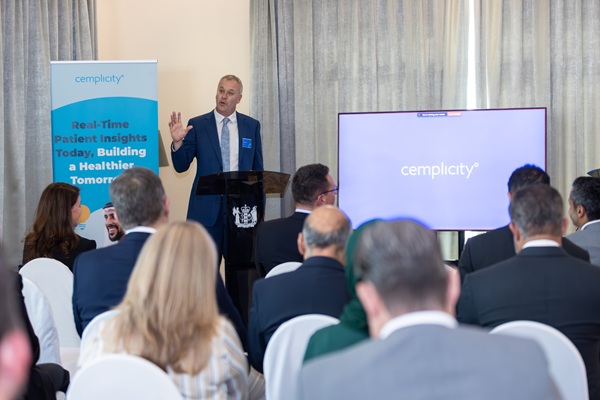|
Healthcare leaders gather in
Abu Dhabi to drive UAE’s
patient-centered vision
forward
(ABU
DHABI)
-
Healthcare
leaders from across the UAE
and abroad recently convened
in Abu Dhabi to explore how
the patient voice is shaping
the future of healthcare.
The event, hosted at the New
Zealand Ambassador’s
Residence by
Cemplicity – a global
leader in real-time
patient-reported experience
and outcome measures -
highlighted how acting on
patient feedback can improve
care, support workforces,
and drive sustainable
growth.
Titled “From
Insight to Impact –
Designing the Future of
Healthcare Through the
Scaled Power of the Patient
Voice,” the event brought
together senior executives,
clinicians, and global
experts, including Dr
Mujtaba Ali-Khan (Burjeel
Holdings), Amanda
Appelgryn (Mediclinic),
and Jason Wolf (The
Beryl Institute).
Patient
experience is a UAE priority
The UAE has set
ambitious goals for
healthcare transformation.
The We the UAE 2031 vision
calls for harnessing
data-driven health solutions
to improve population health
and quality of life, while
the Abu Dhabi Healthcare
Strategic Plan identifies
patient safety and
experience as central
priorities alongside
workforce resilience and
system sustainability.
Together, these national and
emirate-level strategies
reinforce the importance of
amplifying the patient voice
to achieve the UAE’s
ambition to become a global
benchmark in healthcare
excellence.
Restoring humanity to
healthcare
While healthcare systems are
built on rigorous protocols
and technology, speakers
emphasized that what truly
differentiates leading
providers is their ability
to listen and respond to
patient voices in real time.
Research presented at the
event showed that 94% of
patients consider being
listened to as important as
receiving safe care.
“Human experience is not an
initiative; it is
healthcare’s foundation,”
said Jason Wolf,
President & CEO of The Beryl
Institute. “When
organizations listen and act
on what patients say, they
build trust, improve
outcomes, and create
measurable value for their
staff, their communities,
and their bottom line.”
From feedback to
action
Amanda Appelgryn,
Group Senior Manager for
Client Experience at
Mediclinic, noted
how embedding patient voice
into frontline practice is
reshaping operations:
“Feedback alone does not
change things—action does.
By giving caregivers
real-time insights, we are
empowering them to make
micro-changes that lead to
macro transformation. The
patient voice has become a
strategic asset guiding both
clinical and operational
decisions.”
Listening as workforce
support
Dr. Mujtaba
Ali-Khan, Group Chief
Clinical Innovation Officer
at Burjeel Holdings,
highlighted the direct
benefits for hospital teams:
“When we listen to our
patients, we also support
our doctors and nurses.
Real-time feedback not only
helps address patient needs
faster but also provides the
necessary insight for
caregivers to deliver the
best possible care. This
strengthens morale, improves
retention, and ultimately
enhances care quality.”
Technology that
connects, not replaces
While the discussion
acknowledged the rise of AI
and digital health,
participants stressed that
technology must be used to
augment—not replace—the
human touch.
“Technology should connect
people, not mimic them,”
said Blaik Wilson,
CEO of Cemplicity.
“Our platform enables
hospitals to respond to what
matters most to patients in
real time. As the UAE
continues its journey to
become a leading global
healthcare destination,
those who harness technology
to amplify humanity will
lead the way.”
A commercial and
clinical imperative
The discussion
reinforced that patient
voice is not just about
compassion but about
competitiveness.
Word-of-mouth remains the
most trusted driver of
healthcare choice, with 59%
of patients saying they
would recommend or avoid a
hospital based on personal
experience.
By
embedding patient
perspectives into
decision-making, UAE
healthcare providers can
differentiate themselves,
achieve sustainable growth,
and advance the country’s
ambition to be recognized
globally for
patient-centered care.
 PRINT
THIS ARTICLE
PRINT
THIS ARTICLE
|



